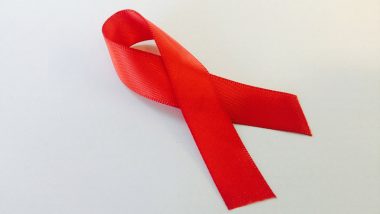New York, July 31: Around 4,000 people contracted HIV infection every day across the world, the United Nations said on Sunday while urging countries to increase investment in disease prevention and access to treatment.
"Progress in the reduction of new HIV infections is slowing & every day 4,000 people become infected around the world. @UNAIDS urges countries to increase investment in HIV prevention & access to treatment," the United Nations Tweeted today.
The latest data from the Joint United Nations Programme on HIV/AIDS (UNAIDS) on the global HIV response reveals that during the last two years of COVID-19 and other global crises, progress against the HIV pandemic has faltered, resources have shrunk, and millions of lives are at risk as a result. The new report, In Danger, is being launched ahead of the International AIDS Conference in Montreal, Canada. National HIV Testing Day 2022 Date & Significance: What is HIV & AIDs? 5 Reasons Why You Should Get Yourself Tested As Part of Routine Health Care.
The number of new infections dropped by only 3.6 per cent globally between 2020 and 2021, the smallest annual decline in new HIV infections since 2016. Eastern Europe and Central Asia, the Middle East and North Africa and Latin America have all seen increases in annual HIV infections over several years, as per the press statement.
In Asia and the Pacific, UNAIDS data now shows new HIV infections are rising where they had been falling. Climbing infections in these regions are alarming. In eastern and southern Africa, rapid progress from previous years significantly slowed in 2021.
"These data show the global AIDS response in severe danger. If we are not making rapid progress then we are losing ground, as the pandemic thrives amidst COVID-19, mass displacement, and other crises. Let us remember the millions of preventable deaths we are trying to stop," said UNAIDS Executive Director Winnie Byanyima in the statement.
As per the statement, AIDS took a life every minute. On average, in 2021, with 650 000 AIDS deaths despite effective HIV treatment and tools to prevent, detect, and treat opportunistic infections. HIV Patients Protest Shortage of Life-saving Drugs.
"These figures are about political will. Do we care about empowering and protecting our girls? Do we want to stop AIDS deaths among children? Do we put saving lives ahead of criminalization?" asked Byanyima. "If we do, then we must get the AIDS response back on track."
The report sets out the devastating consequences if urgent action is not taken to tackle the inequalities which drive the pandemic. It shows that on the current path the number of new infections per year would be over 1.2 million in 2025 - the year in which United Nations member states have set a goal of fewer than 370 000 new HIV infections.
(The above story is verified and authored by ANI staff, ANI is South Asia's leading multimedia news agency with over 100 bureaus in India, South Asia and across the globe. ANI brings the latest news on Politics and Current Affairs in India & around the World, Sports, Health, Fitness, Entertainment, & News. The views appearing in the above post do not reflect the opinions of LatestLY)













 Quickly
Quickly











